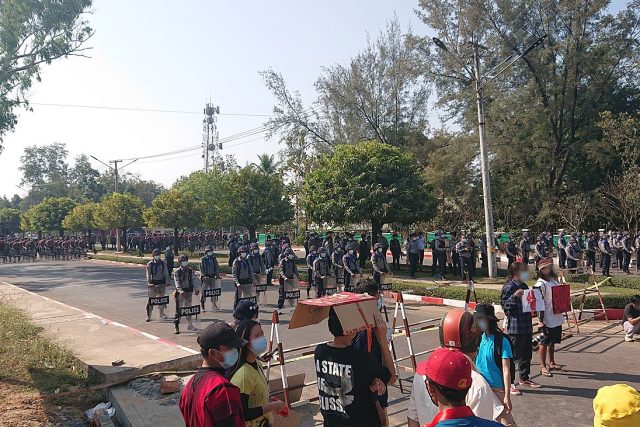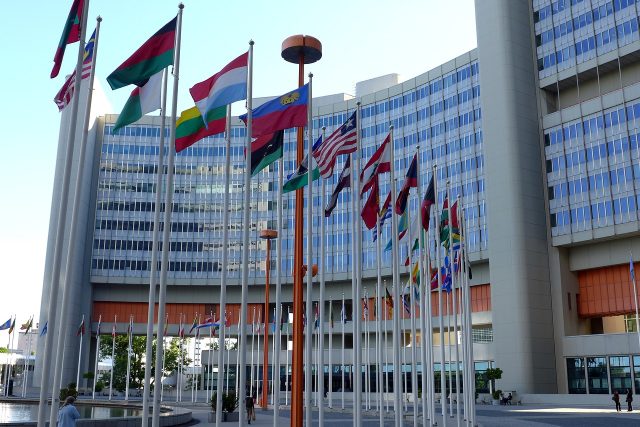UN High Commissioner for Human Rights Volker Türk Tuesday condemned an airstrike by Myanmar fighter jets in the country’s Sagaing region, a stronghold for opposition to the country’s military-backed government. “I am horrified by reports of today’s airstrikes by Myanmar fighter jets on a community hall in the Sagaing region,” said Türk. “Despite clear legal obligations for the military to protect civilians in the conduct of hostilities, there has been blatant disregard for the related rules of international law.”Fighter jets targeted the area early in the morning of April 11. Though officials have been unable to confirm the total death count, initial reports suggest that more than 100 people were killed by the airstrikes, including schoolchildren and other civilians. A helicopter gunship also reportedly fired on people after the initial strikes.The airstrike in Sagaing highlights how the conflict in Myanmar has escalated since its military coup two years ago. The government is increasingly turning to airstrikes in an attempt to quell opposition to its rule, something human rights groups like Amnesty International have called on countries to confront: “While some meaningful action has been taken, the international community can and must do more to stop attacks on civilians in Myanmar.” Specifically, Amnesty International called on the Association of Southeast Asian Nations (ASEAN) and the UN Security Council to help curtail violence in Myanmar.One of the concrete actions Amnesty International says the global community can take is to shut off Myanmar’s access to jet fuel. If Myanmar cannot access a reliable supply chain for jet fuel, it will not be able to continue attacks like the one in Sagaing. The US, along with Canada, the UK, and the EU, has imposed sanctions on Myanmar’s military government hoping to achieve exactly that. At the time the sanctions were announced, US Treasury officials said that “Burma’s military regime continues to inflict pain and suffering on its own people” and that the US “will continue to deny the military the materiel it uses to commit these atrocities.”Tuesday’s deadly airstrike was not an isolated incident but instead marked yet another example of the “intensified violence” that has become commonplace since the 2021 military coup. At the time of the coup, JURIST’s correspondents in Myanmar wrote starkly about the actions military officials were taking to solidify their power, including cutting electricity and burning down civilian homes, saying that “the junta shows no mercy towards anyone living in Myanmar.” In the two years since the coup, violence has only intensified, with a recent dispatch saying that suffering is widespread such that “the number of actual victims of the military coup would make up the whole population of Myanmar.” Still, people are defiant, participating in actions like the recent “silent strike” and refusing to give up their hopes for a more democratic country, with JURIST’s correspondent saying:The solidarity and resilience of Myanmar people is going strong to this day. In these past two years, Myanmar people have come to a deep and unbreakable realisation that they are the source of power in this democratic society and they demonstrate this again and again by protesting on the streets, banging pots and now, the loudest silence. This country is ours.



The Most Read
Сryptocurrencies
Bitcoin and Altcoins Trading Near Make-or-Break Levels
Financial crimes
Thieves targeted crypto execs and threatened their families in wide-ranging scheme
Financial crimes
Visa Warning: Hackers Ramp Up Card Stealing Attacks At Gas Stations
News
Capitalism is having an identity crisis – but it is still the best system
Uncategorized
The 73-year-old Vietnamese refugee is responsible for bringing Sriracha to American consumers
Uncategorized
Electric Truckmaker Rivian, Backed By Amazon, Ford, Raises Whopping $1.3 Billion